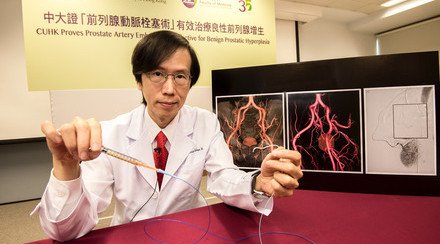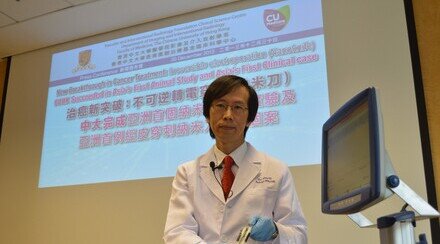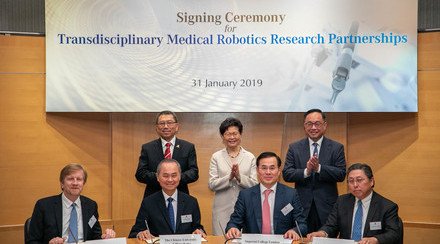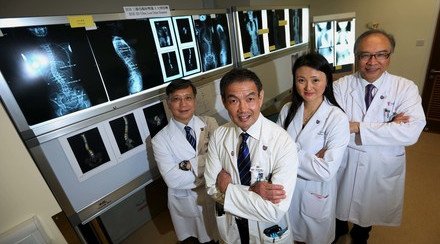CUHK Research Team Develops an AI System for Detecting COVID-19 Infections in CT with a Privacy Preserving Multinational Validation Study
A multidisciplinary research team from The Chinese University of Hong Kong (CUHK) has developed an artificial intelligence (AI) system for the automated, rapid and accurate detection of COVID-19 infections in chest computed tomography (CT) images. The team was led by Professor Qi DOU and Professor Pheng Ann HENG from the Department of Computer Science and Engineering, Faculty of Engineering, Dr. Tiffany SO and Professor Simon YU from the Department of Imaging and Interventional Radiology, Faculty of Medicine.
Using new federated learning techniques, the AI system is trained on multicentre data in Hong Kong without the need to centralise data in one place, thus protecting patient privacy. “The established AI system is validated on multiple, unseen, independent external cohorts from mainland China and Europe, showing the potential and feasibility to build large-scale medical datasets with privacy protection, so as to rapidly develop reliable AI models amidst a global disease outbreak such as the COVID-19 pandemic,” said Professor Qi DOU from the Department of Computer Science and Engineering. A recent research article describing the outcomes from the study has been published in the npj Digital Medicine, part of the Nature Partner Journals series.

A multidisciplinary research team from CUHK has developed an artificial intelligence (AI) system for the automated, rapid and accurate detection of COVID-19 infections in chest computed tomography (CT) images.
The research team includes: Mr. Quande LIU (1st from right), PhD student, and Prof. Qi DOU (2nd from left), Assistant Professor, Department of Computer Science and Engineering; and Dr. Tiffany SO(1st from left), Assistant Professor, and Prof. Simon YU (2nd from right), Chairman, Department of Imaging and Interventional Radiology, Faculty of Medicine; CUHK.
Accurate COVID-19 CT lesion detection with federated deep learning
COVID-19 has presented a public health crisis worldwide. In Hong Kong, even with advanced healthcare service systems, the rapidly evolving COVID-19 pandemic has been overwhelming the existing clinical systems and burdening frontline radiologists with an unprecedentedly large emergency workload for data analysis and medical image interpretation. Given this situation, automated diagnostic methods with AI are extremely helpful to facilitate effective management of COVID-19.
Radiological imaging can play a complementary role together with clinical diagnostic testing in COVID-19 diagnosis, and can effectively assess the severity and progression in the course of disease. The team in close collaboration with engineering and clinical experts has developed an accurate AI system for automated detection of COVID-19 lesions from CT images, which can provide immediately available results, alleviating the burden of clinicians in interpreting images. Professor Pheng Ann HENG from the Department of Computer Science and Engineering said, “Making use of the cutting-edge federated learning techniques, the AI system can effectively coordinate the patient data across multiple clinical centres in Hong Kong, including Prince of Wales Hospital, for model development. Given the unavoidable challenge of data heterogeneity in medical images, multicentre collaborative effort is essential to capture diverse data distributions, which enhances model reliability for unleashing the potential of AI-powered medical image diagnosis in complex clinical practice.”
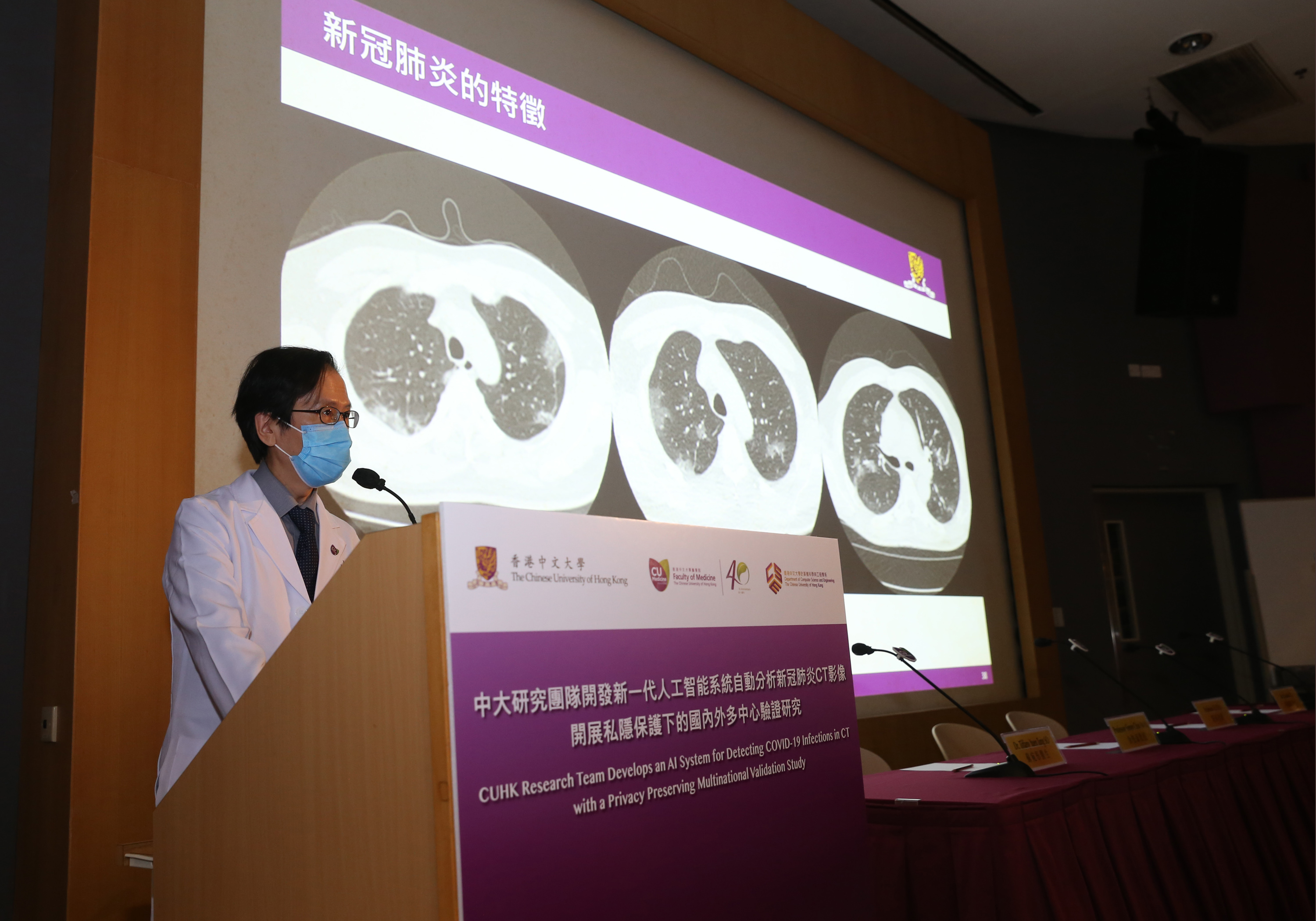


Model robustness and generalisability on multi-national validation cohorts
The established AI model has been externally validated on multiple unseen cohorts from mainland China and Germany. Experimental outcomes revealed that the AI model yields a competitive performance in lesion detection in comparison with radiologist interpretation of chest CT across local, regional and global patients. This wide validation and applicability on cohorts with various imaging scanners and different demographics show outstanding robustness and generalisability of the established AI model in complex real-world situations. Dr. Tiffany SO, Assistant Professor from the Department of Imaging and Interventional Radiology at the Faculty of Medicine, stated, “Besides a high diagnostic accuracy, the AI system can also present a remarkable speed advantage to clinician interpretation. In traditional clinical diagnosis, review and interpretation of a single chest CT takes at least 5-10 minutes for clinicians. In contrast, the AI system can accurately evaluate the same CT data in around 40 ms, showing immense potential to support real-time clinical practice.”
Video introducing the multidisciplinary research team.
This latest study demonstrates the use of privacy preserving AI in responding to a global disease outbreak. In the rapidly evolving pandemic of COVID-19, there is apparently no time to set up complicated data sharing agreements across institutions or even countries. Professor Simon YU, Professor and Chairman of the Department of Imaging and Interventional Radiology at the Faculty of Medicine, added, “Privacy preserving machine learning acts as an important enabler under such situations to gather efforts on digital medicine technology for providing reliable clinical assistance for timely patient care. This study demonstrates the feasibility and efficacy of federated learning for COVID-19 image analysis, where collaborative effort is especially valuable at a time of global crisis. More importantly, beyond assisting COVID-19 management, we believe that AI, which protects patient privacy and achieves reliable generalisability in practice, has enormous potential to revolutionise smart hospitals and healthcare systems in Hong Kong and worldwide.”





